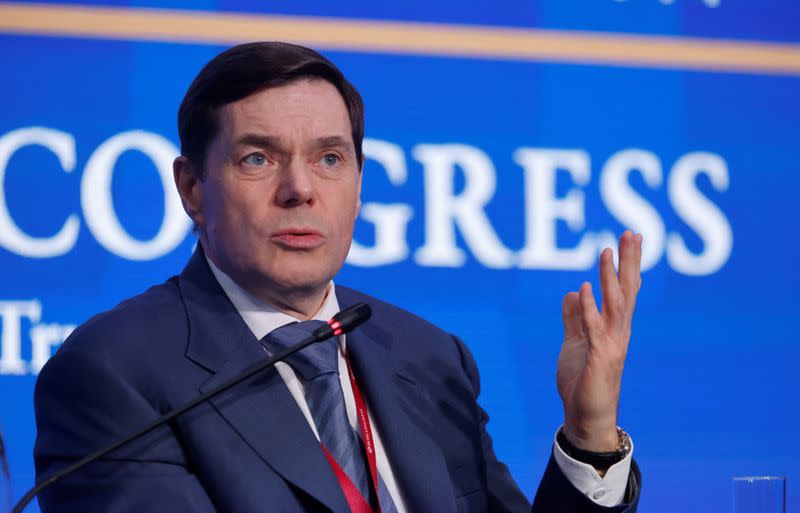Billionaire Mordashov criticises Russian government over tax 'stability'

ST PETERSBURG (Reuters) - Russian billionaire Alexey Mordashov criticised the government's attempts to label its tax policy as stable on Friday, after years of annual tweaks to the fiscal burden and amendments approved in May that left businesses facing higher tax bills.
The government approved more tax hikes last week for companies and wealthy individuals that could provide an extra $30 billion to next year's budget revenues, and proposed other increases on mining rents, all of which could give Russia more spending power as it wages war in Ukraine.
"Every year we have a pretty similar agenda. Every year, we say that stability is needed in the tax system, above all, the stability of ownership," Mordashov told a business breakfast as part of the St Petersburg economic forum.
"Tax stability means that taxes remain unchanged for a long time... You can't raise taxes and simultaneously talk about their stability."
Mordashov, one of Russia's richest people with a fortune of $25.5 billion according to Forbes, said he was prepared to pay more tax, but urged officials to ensure predictability for businesses.
He listed export duties linked to the rouble-dollar exchange rate, taxes on steel and higher mineral extraction taxes as examples of the unpredictable nature of Russia's tax policy.
"All this undermines trust... it undermines motivation and it undermines the possibility for us to plan for the future."
He suggested the government enshrine in law a promise to make no tax changes for a year to prove it was serious about stability.
Finance Minister Anton Siluanov said stability in tax policy does not exclude some amendments and that the existence of Russia's budget rule, which limits expenditure and interest rate growth, was key.
"The most important thing is trust in the budget rule," said Siluanov.
Russia has also tweaked the mechanics of its budget rule several times.
Siluanov said that rises in duties, mineral extraction tax and last year's one-off excess profits tax were consequences of Russia not having enough resources to reconfigure industries, solve key problems and modernise the economy.
He, in turn, said tax tweaks were needed to foster investment in areas like drones.
"Why doesn't business invest in machines, electronics, drones? It's good business. Why don't you invest?" Siluanov asked. "We will direct resources received from the (extra) 5% corporation tax received to the sectors where it is needed.
"You don't invest, but we need to."
(Reporting by Darya Korsunskaya; Writing by Alexander Marrow; Editing by Josie Kao)

 Yahoo Finance
Yahoo Finance 